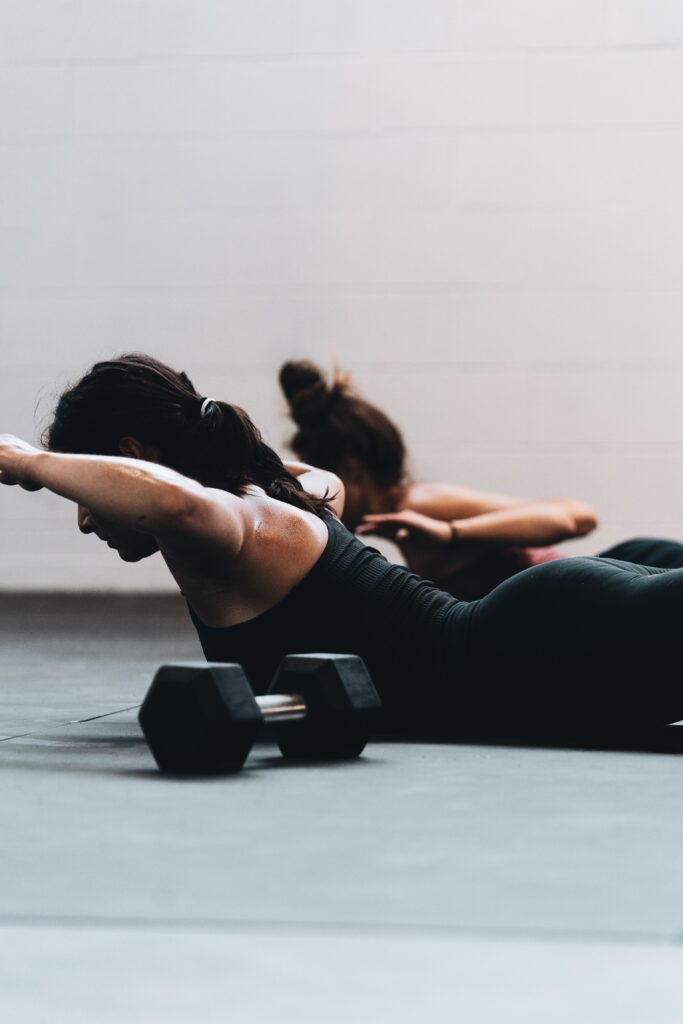Whether it’s sitting down slouching forward, staring at the ground, or leaning to one side for hours. Poor posture can take many forms, and have some serious negative impacts on the quality of your life. This post will look to answer the question of how does posture affect stress?
Within this post, we will be covering what makes good posture, the impact of poor posture, and ways we can promote good posture daily. These habits and pieces of knowledge will better prepare us to handle the stressors of life.
What is posture?
Posture is a composite of positions of various joints within the body. How one joint is positioned will have an effect on the position of other joints.
Within correct posture we aim to be in a position where there is minimum stress applied to each joint, conversely with poor posture, this is a position where there is increased stress on the joints in our body.
There are different types of posture. The first is static posture where the body is aligned in static positions such as sitting down, kneeling, lying down, or standing up. The second is dynamic posture where the body is moving, such as jogging, lifting weights, or walking.
Proper posture tips
The most optimal way to achieve proper posture is to ensure your spine is in alignment with your limbs and your head.
When standing, your head should sit level and balanced on top of your shoulders, your rib cage should sit on top of your hips and your knees should be aligned with the center of your ankle. Keep your feet shoulder-width apart.
When sitting, it’s similar to standing in that your head should sit level and balanced on top of your shoulders, your rib cage should sit on top of your hips. You should also make sure your feet touch the floor and your legs are at a 90 degrees angle at the knee. Your elbows should also be tucked into the body and at a 90-degree angle.
A valuable tip to maintain a good posture is to imagine a piece of string is being pulled from the top of your head, this helps elongate the spine and relax the neck and shoulders. Try to be conscious of your posture throughout the day.
Why is posture important?
Good posture is extremely important in several aspects. In terms of physical benefits, with your spine being in proper alignment it means your muscles and joints are in balance. This decreases the stress on your body and helps prevent degeneration of muscles and joints, it can also help lower the risk of injury. With good posture, your body is able to move more efficiently and over time decreases fatigue as a result. Good posture could be the key to resolving reoccurring back or neck pain.
The state of your posture can also have an impact on your mental health, but the mind and body have an important connection with each other. This is shown by your mood affecting your posture, and conversely, your posture affecting your mood. When upset or depressed you have a greater likelihood of slouching. A study by Harvard University found that by simply sitting up straight, people were able to improve certain symptoms of stress, anxiety and depression. Power poses are known to improve confidence and reduce anxiety and stress.
How does posture affect stress?
Having bad posture can impact our autonomic nervous system, it was shown in a study that those with forward head posture had abnormal sensorimotor control and autonomic nervous system dysfunction when compared to those with normal head posture alignment. This supports the statement that poor posture affects stress negatively as it can interfere with the body’s motor controls and the regulation of the fight or flight and rest and digest state (sympathetic & parasympathetic).
An obvious reason how poor posture can impact stress is of course the increased strain on the back and neck, it can be very difficult to stay calm and collected whilst living in pain. Without resolving your posture issues, pain can get seriously worse resulting in nerve damage problems such as sciatica, and carpal tunnel which can harm day-to-day life.
Having bad posture has a direct link to poor diaphragm ability and expansion of the chest, this means breathing is negatively impacted. By having a limited thoracic cavity, our ribs cannot move as freely, preventing maximum lung capacity. Bad posture can create pain and a feeling of restlessness in the body, this makes it incredibly hard to relax and makes simple things like sleep very difficult.
It may not seem that obvious at first how someone with a forward head posture or rounded shoulders can make you more stressed. But as you divulge into the details and understand the impact on the nervous system, motor controls, physical pain, sleep, and breathing it becomes obvious how these can compound into a snowball effect of living hell.

Habits to improve posture
Below are some healthy habits you can include into your day to day life to help promote good posture. It must be highlighted that resolving years of bad posture does not happen overnight, and it can easily take as long as the time you spent ruining it. You get what you put in when it comes to remediating posture problems, but the rewards are worth it.
- Exercise: Look to get light-moderate exercise daily, whether it’s a light walk or going to the gym and lifting weights. Many people have weak back muscles from rounded shoulders as a result of sitting down too much, for this I’d recommend strengthening your back with exercises such as back rows and stretching your hip flexors.
- Nasal breathing: Breathing through our nose can have a positive impact on our posture as it helps maintain a more upright posture, this helps prevent forward head posture and rounded shoulders.
- Be conscious: Have awareness of the alignment of your spine and joints throughout the day, understand what positions are good for your body, and try to limit positions that are bad for your body such as too much sitting.
- Stretch: Over time our muscles get tight and weak from staying too long in static positions, common problems are tight hip flexors from sitting and tight shoulders from slouching. I’d recommend practicing shoulder dislocates and the couch stretch.



Leave a Reply